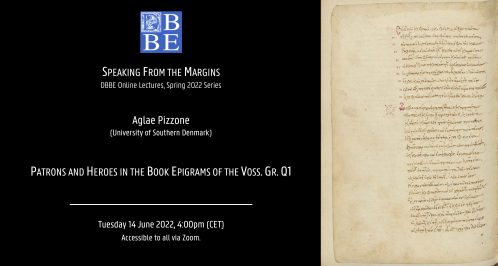Milo Rau maakt een politieke Antigone voor de 21ste eeuw, samen met inheemse mensen, activisten en acteurs uit Brazilië en Europa.
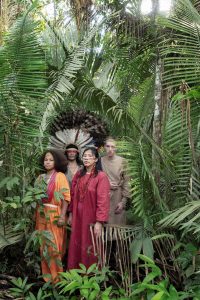
De rol van Antigone wordt vertolkt door de inheemse actrice Kay Sara. Het koor door overlevenden van het grootste bloedbad dat de politie aanrichtte tegen landloze boeren.
Voor Antigone in de Amazone reisden Milo Rau en zijn team naar de Braziliaanse staat Pará waar de bossen branden om plaats te maken voor de sojateelt en waar het kapitalisme de natuur verslindt. Op een bezet stuk land creëert het team in samenwerking met deMovimento dos Trabalhadores Sem Terra, ’s werelds grootste organisatie van ‘landlozen’, een allegorisch stuk over de gewelddadige verwoestingen en ontheemding door de moderne staat, die privébezit belangrijker acht dan het traditionele recht op land.
Het creatieproces voor Antigone in de Amazone werd in 2020 onderbroken: het team moest terugkeren uit Brazilië door de coronapandemie. In de herfst van 2022 reizen de makers terug om de voorstelling eindelijk af te werken en tijdens seizoen 2022-2023 de première te presenteren.
Nadat hij voor Orestes in Mosul naar de voormalige hoofdstad van de Islamitische Staat trok en de voor de Jezusfilm The New Gospel naar de vluchtelingenkampen in Zuid-Italië, reist Milo Rau nu met zijn team naar het Amazonewoud in Brazilië om er zijn Trilogie van Klassieke Mythen te voltooien.
Praktische informatie
- vrijdag 9 juni 2023, om 20u00
- NTGent Schouwburg (Sint-Baafsplein 17, 9000 Gent)
- EN, PT, TUCANO gesproken; NL, EN boventiteld
- meer info op de website van NTGent
Het Griekenlandcentrum heeft voor jullie 30 tickets ter beschikking, voor een gereduceerde prijs van 13 euro.
Geïnteresseerd? Stuur vóór 21 mei een mailtje naar griekenlandcentrum@ugent.be en schrijf het bedrag over op het rekeningnummer BE69 8803 2505 0178 (bevestiging volgt nadien).
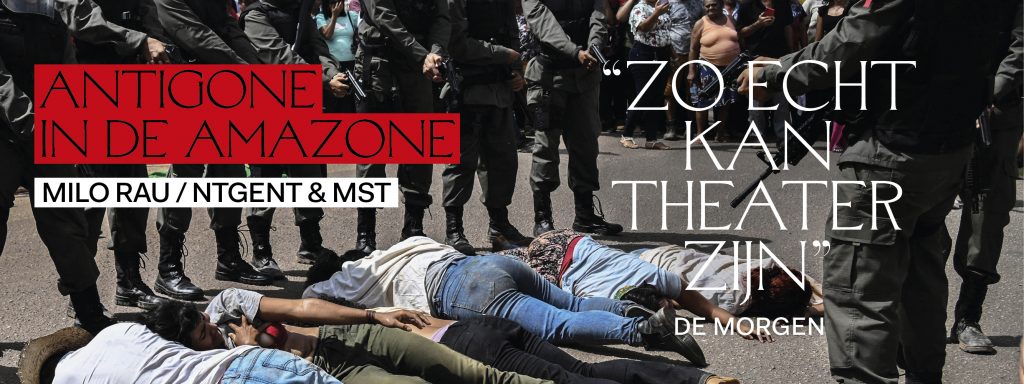
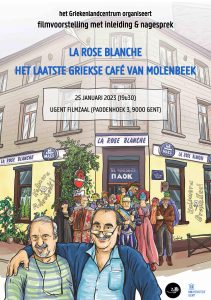
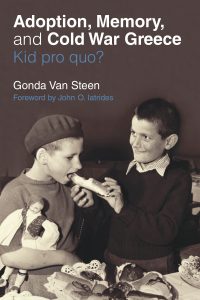 Voorsmaakje
Voorsmaakje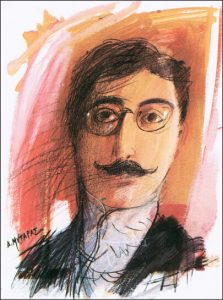
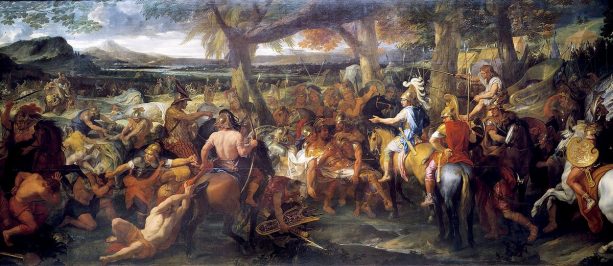
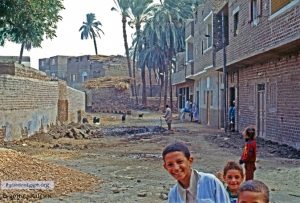 In 1905, during some restoration works in a private house in the Egyptian village of Kom Ishgaw, around seventy kilometres south of the city of Asyut, a crevice in a wall disclosed a large number of papyrus scrolls. The archaeological excavations that followed this fortuitous discovery brought to light a jar full of papyri. On top of the jar, as to secure its contents, there was a codex made of four lost comedies by Menander. The whole documentation belonged to a single family: the private archive of Dioscorus of Aphrodite was then discovered.
In 1905, during some restoration works in a private house in the Egyptian village of Kom Ishgaw, around seventy kilometres south of the city of Asyut, a crevice in a wall disclosed a large number of papyrus scrolls. The archaeological excavations that followed this fortuitous discovery brought to light a jar full of papyri. On top of the jar, as to secure its contents, there was a codex made of four lost comedies by Menander. The whole documentation belonged to a single family: the private archive of Dioscorus of Aphrodite was then discovered.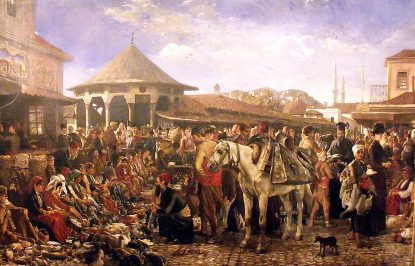 Onder de Osmanen leefden Grieken verspreid over het hele Balkanschiereiland. Buiten de gebieden met een compacte Griekse, ook rurale bevolking, die zich vandaag grotendeels binnen de grenzen van Griekenland bevinden, vormden ze van in de achttiende eeuw als handelaars en hogere clerus een belangrijk deel van de stedelijke elite. Doordat religieuze identiteit als belangrijker werd beschouwd dan etnische – wat in de hand werd gewerkt door de Osmaanse administratieve indeling van de bevolking in millets (religieuze gemeenschappen) – bestonden er voor orthodox-christelijke niet-Grieken uit de dorpen die carrière maakten in de stad geen morele obstakels om zich te identificeren met de Griekse bovenlaag. De termen Griek en Romeos sloegen bijgevolg niet alleen op etnische Grieken, maar ook op Osmaanse orthodoxe-christenen in het algemeen en op bepaalde beroepscategorieën en sociale klassen. Het onderscheid tussen etnische en andere “Grieken” was irrelevant; iedereen was immers in de eerste plaats orthodox christen. Pas met de opkomst van het nationalisme in de negentiende eeuw werden betrokkenen gedwongen om te kiezen voor een of andere nationaliteit. Wat deze situatie in de praktijk betekende wordt in de lezing geïllustreerd aan de hand van de Griekse carrière van de Bulgaarse dichter Grigor Părličev/Grigorios Stavridis uit het Macedonische Ohrid en de gudilas, vergriekste Bulgaarse immigranten in de Thracische stad Plovdiv/Filippoupolis.
Onder de Osmanen leefden Grieken verspreid over het hele Balkanschiereiland. Buiten de gebieden met een compacte Griekse, ook rurale bevolking, die zich vandaag grotendeels binnen de grenzen van Griekenland bevinden, vormden ze van in de achttiende eeuw als handelaars en hogere clerus een belangrijk deel van de stedelijke elite. Doordat religieuze identiteit als belangrijker werd beschouwd dan etnische – wat in de hand werd gewerkt door de Osmaanse administratieve indeling van de bevolking in millets (religieuze gemeenschappen) – bestonden er voor orthodox-christelijke niet-Grieken uit de dorpen die carrière maakten in de stad geen morele obstakels om zich te identificeren met de Griekse bovenlaag. De termen Griek en Romeos sloegen bijgevolg niet alleen op etnische Grieken, maar ook op Osmaanse orthodoxe-christenen in het algemeen en op bepaalde beroepscategorieën en sociale klassen. Het onderscheid tussen etnische en andere “Grieken” was irrelevant; iedereen was immers in de eerste plaats orthodox christen. Pas met de opkomst van het nationalisme in de negentiende eeuw werden betrokkenen gedwongen om te kiezen voor een of andere nationaliteit. Wat deze situatie in de praktijk betekende wordt in de lezing geïllustreerd aan de hand van de Griekse carrière van de Bulgaarse dichter Grigor Părličev/Grigorios Stavridis uit het Macedonische Ohrid en de gudilas, vergriekste Bulgaarse immigranten in de Thracische stad Plovdiv/Filippoupolis.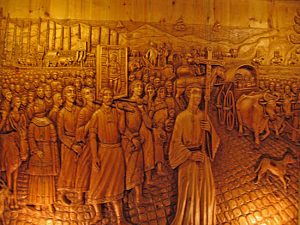 De Griekse aanwezigheid aan de noordkust van de Zwarte Zee heeft een traditie van meer dan 2500 jaar en gaat terug tot de eerste oude Griekse kolonies. Hoe komt het dat dit tegenwoordig bijna onmerkbaar is? Deze lezing zal bespreken hoe de Byzantijnse naam van het volk “Romeinen” tot op de dag van vandaag bewaard is gebleven, hoe het Russische rijk een speciale stad voor de Grieken heeft gebouwd en hoe de Russische Federatie deze heeft vernietigd, waarom in het Russisch de denigrerende naam van de Grieken nu verwijst naar de Amerikanen, waarom etnische Grieken in Oekraïne nu vaak Russische achternamen dragen, hoe Odessa het centrum van de Griekse nationale bevrijdingsbeweging werd, en hoe de Grieken op het einde van de 20e eeuw het Griekse plein in Odessa lelijk hebben gemaakt, om er vervolgens in de 21e eeuw een prachtig park aan te leggen.
De Griekse aanwezigheid aan de noordkust van de Zwarte Zee heeft een traditie van meer dan 2500 jaar en gaat terug tot de eerste oude Griekse kolonies. Hoe komt het dat dit tegenwoordig bijna onmerkbaar is? Deze lezing zal bespreken hoe de Byzantijnse naam van het volk “Romeinen” tot op de dag van vandaag bewaard is gebleven, hoe het Russische rijk een speciale stad voor de Grieken heeft gebouwd en hoe de Russische Federatie deze heeft vernietigd, waarom in het Russisch de denigrerende naam van de Grieken nu verwijst naar de Amerikanen, waarom etnische Grieken in Oekraïne nu vaak Russische achternamen dragen, hoe Odessa het centrum van de Griekse nationale bevrijdingsbeweging werd, en hoe de Grieken op het einde van de 20e eeuw het Griekse plein in Odessa lelijk hebben gemaakt, om er vervolgens in de 21e eeuw een prachtig park aan te leggen.